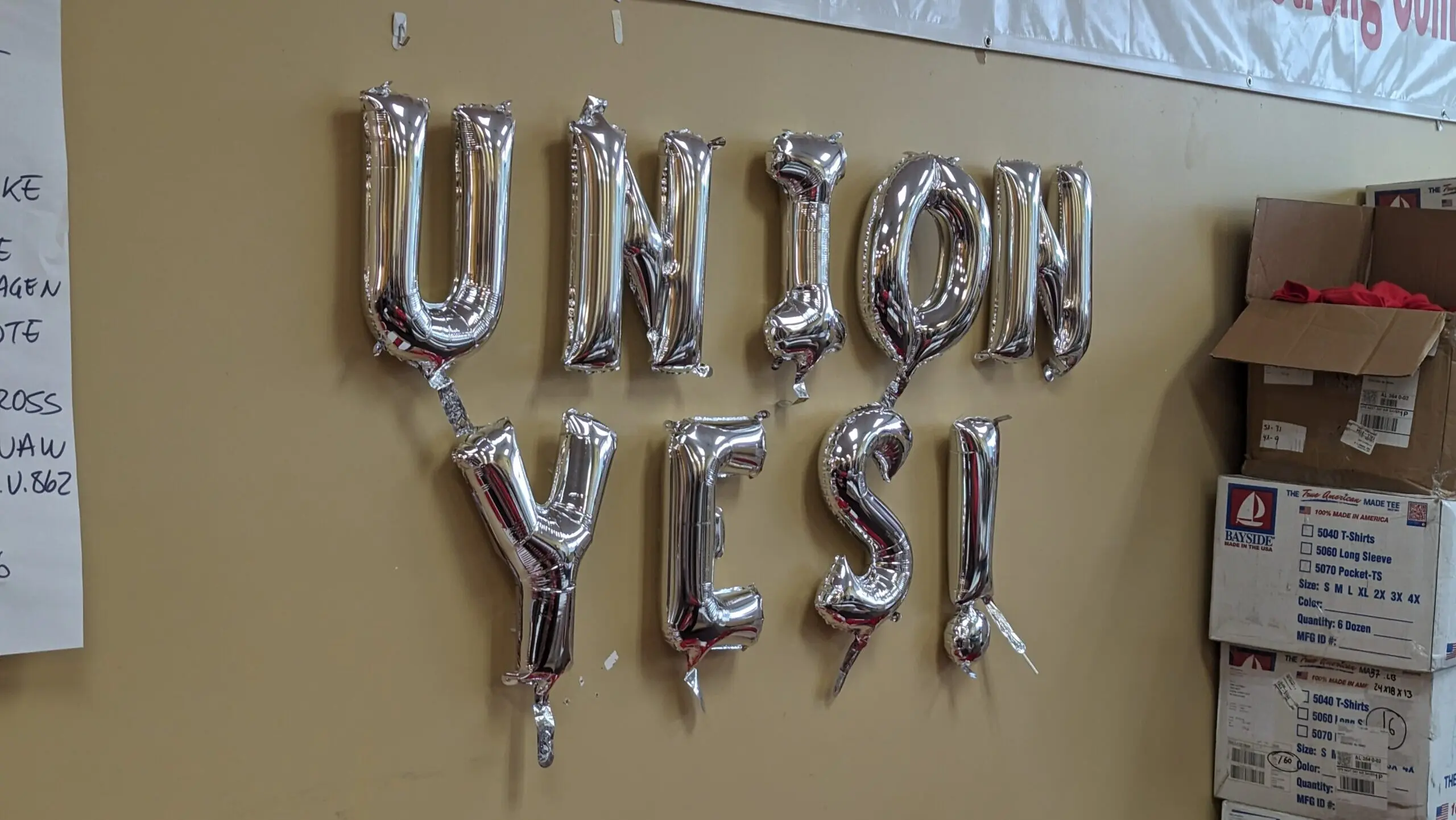|
Getting your Trinity Audio player ready...
|
On Wednesday, the National Labor Relations Board issued a decision finding that captive audience meetings violate section 8(a)(1) of the National Labor Relations Act. A perennial tool of companies seeking to stop insurgent unionization campaigns, captive audience meetings are mandatory assemblies where managers try to convince their employees not to join a union.
“Employers require their workers to come to a meeting while they are on the clock and then give a list of well-honed talking points that union avoidance consultants have crafted,” Matthew Bruenig, a labor lawyer and proprietor of the independent publication NLRB Edge, explained. “If these meetings become voluntary and many employees choose not to attend them, that could make union avoidance much harder.”
During the union election at the Mercedes plant in Vance this past summer, pro-union workers told APR and other outlets they felt captive audience meetings were oppressive and unfair.
One Mercedes employee, Robert Lett, said that in the lead-up to the election the company began showing anti-union videos when they would normally have shown safety videos.
“And you have people ask, ‘Well I don’t want to watch this. Can I leave?’ And they say no,” fellow Mercedes employee Kay Finklea explained. “It’s mandatory. They make you watch it.”
Reflecting on the union’s loss in the pages of Labor Notes, Jeremy Kimbrell, one of the key organizers in the Mercedes unionization drive, condemned the “horror stories about unions” workers were told after being called into meetings by management.
NLRB General Counsel Jennifer Abruzzo has been trying to get the National Labor Relations Board to recognize that captive audience meetings are illegal more or less since she was appointed.
During one webinar APR reported on, Abruzzo said she “personally [thinks they] are unlawful because economically dependent workers are not afforded the opportunity to exercise their statutory right to refrain from listening.” Now, over two years after she issued her forceful memo on the subject, the board has finally agreed with her.
“Ensuring that workers can make a truly free choice about whether they want union representation is one of the fundamental goals of the National Labor Relations Act,” NLRB chairman Lauren McFerran wrote. “Captive audience meetings—which give employers near-unfettered freedom to force their message about unionization on workers under threat of discipline or discharge—undermine this important goal.”
Unions in Alabama have been struggling with this power asymmetry and the effects of captive audience meetings for quite a while.
The Retail, Wholesale and Department Store Union recently began appealing a NLRB judge’s decision on the grounds that the union requires more access to workers to compete with Amazon on an equal footing. The judge had ordered a third election at the Amazon facility in Bessemer due to management interrogating and surveilling employees and confiscating pro-union literature, but had also ruled that captive audience meetings were not violations.
Wednesday’s decision was not retroactive, so it won’t directly affect the RWDSU’s appeals or the unfair labor practice charges the United Auto Workers filed against Mercedes. Additionally, employers are still allowed to share anti-union messages with workers during meetings as long as those meetings are voluntary, accurately advertised, and no attendance is recorded.
However, even with these caveats, this new interpretation could still have significant consequences for future labor organizing in the state. National AFL-CIO president Liz Shuler called the decision a “huge win for workers.” Whether or not this new status quo will last long enough for the ink to dry, though, is still up in the air.
President Biden recently renominated McFerran for a third term, and nominated Republican Joseph Ditelberg for a vacant seat, but the Senate has yet to confirm either nominee. If McFerran is not confirmed, both vacancies could be filled by Trump appointees whom are likely to be markedly more conservative in their interpretations of the NLRA.
Bruenig told APR he believes it’s “likely a second Trump NLRB would include this on the list of precedents it is seeking to reverse.” In that case, captive audience meetings would probably end up back in employers’ anti-union toolboxes quite quickly.
On paper this decision will make it easier for workers to form a union, but whether it actually reduces the difficulty of labor organizing in Alabama is largely going to be determined by who is appointed to the board in coming months.























































